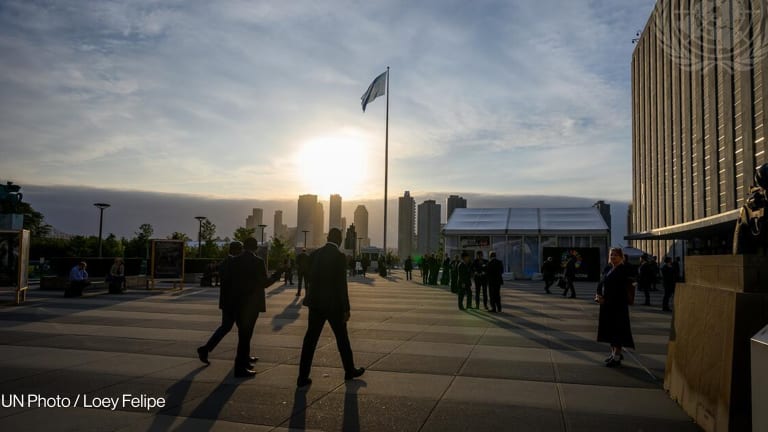
Ahead of International Women’s Day, Justine Greening announced a number of measures that will help advance girls and women’s rights and opportunities, one of her priorities for U.K. aid.
The Department for International Development will support and roll out a number of actions as part of efforts to provide women and girls “choice, voice and control,” the U.K. secretary of state for international development said yesterday at an event hosted by Amnesty International, the Gender and Development Network and Christian Aid. Related actions the aid agency will be undertaking include:
An 11.5 million pounds ($17.3 million) support for the World Bank’s Gender Innovation Lab project, which will focus on research highlighting “what works in terms of giving girls and women control over their economic lives in sub-Saharan Africa.”
More funding to provide 3 million contraceptive implants and 17 million female condoms, and for a so-called Leadership for Change program, which will help promote and enhance women’s leadership skills.
A high-level conference sometime in September whose aim is to galvanize action on violence against women and girls in humanitarian emergencies. The event will be participated by donors, aid agencies and gender advocates, among others.
The establishment of an expert advisory group, which, according to Greening, will include leaders from human rights groups, the private sector and civil society.
Greening also announced that the United Kingdom will push for women’s rights in Afghanistan by making it as “country strategic priority.” Afghanistan has often been cited for its poor track record of protecting women.
“A greater emphasis within the Afghanistan country plan, for the first time … to ensure the gains for girls and women in Afghanistan are not lost but can be built upon,” she said.
Greening will deliver another speech next week, wherein she will talk about the need to engage the private sector in investing in women and girls.
“Investing in girls and women works — it’s becoming increasingly a core business strategy yielding real investor returns,” she said.
“Locking out women isn’t just bad for an economy, it’s bad for a society,” she added. “It seems common sense, but it’s still happening.”
Anti-poverty group Oxfam expressed delight over the initiatives, saying “helping women assert themselves in the home and workplace benefits both women themselves, and by unlocking their potential, their communities and the wider economy,” Oxfam’s Deputy International Director Sue Turrell said.
Read more development aid news online, and subscribe to The Development Newswire to receive top international development headlines from the world’s leading donors, news sources and opinion leaders — emailed to you FREE every business day.








